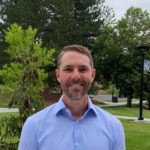Professor Lucian Ashworth of Memorial University joins the Hayseed Scholar podcast. Luke talks about growing up in England and Wales, then moving to the Netherlands at the age of 15. He chats with Brent about his decision to go to Keele, some of the major figures in IR that shaped his interests very early on, and then going to Career Services at Keele to try and decide where to go for his PhD. Ultimately deciding on Dalhousie, Luke recalls how he developed an interest in interwar figures like Norman Angell and David Mitrany, while also becoming aware of a new guard of approaches and scholars developing Gramscian, Feminist and post-structural applications of International Relations. Thereafter, some time spent at Carleton University with David Long began a series of collaborations that would produce work published at the end of the 1990s. Luke discusses his job interview at Limerick, where he then worked for 16 years until moving to his current position at Memorial in Newfoundland. Luke reflects on the students he trained at Limerick who are still in the academy to this day, such as former Hayseed Scholar podcast guest Cian O’Driscoll and the now ‘internationally renown’ Seán Molloy.
Luke shares the ways in which the moves in the late 1990s and early 2000s to rethink, and reconstitute, the historiography of International Relations, happened in tandem, and then eventual dialogue, with scholars like Duncan Bell, Brian Schmidt and Cecelia Lynch. These moves helped in part to setup the vibrant Historical IR section that includes another Hayseed Scholar podcast guest, Halvard Leira, along with Or Rosenboim and Ben de Carvalho. Luke also discusses the pathbreaking work which has also reconsidered the racial and gender dynamics of this historiography, including by Robbie Shilliam and the Women and the History of International Thought project. He concludes by sharing his thoughts on how studying past civilizational collapses may help us with our current crises of the pandemic and climate catastrophe.
Brent J. Steele is the Francis D. Wormuth Presidential Chair, Department Chair and Professor of Political Science at the University of Utah, and the co-editor in chief of Global Studies Quarterly. He is the author of the recently published Vicarious Identity in International Relations (with Chris Browning and Pertti Joenniemi), and Restraint in International Politics (Cambridge University Press, 2019), which co-won the ISA Theory section book award for 2020.


0 Comments